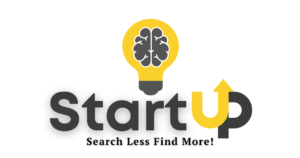In this fast-paced business world, enterprise platforms have an important role to play in fostering operational efficiency and effectiveness. They can be described as the building blocks upon which many businesses thrive on because they allow for smooth operations and innovation. In this paper, we look at what an enterprise platform does at its core and why it is essential to know that.
What is an Enterprise Platform?
An enterprise platform refers to a comprehensive software package that merges dissimilar business processes and functions into one system. These systems are created with large-scale organizations in mind so that they can help manage resources, streamline workflows, and support better decision making within these enterprises.
Key Features of Enterprise Platforms
- Centralized Data Management
One of the key roles played by an enterprise platform is data being centralized centrally managed. This function ensures data storage in a single database for mission-critical information, accessible throughout the organization’s authorized personnel. Data centralization aids real-time decision-making through elimination of duplicates; it also promotes accuracy.
- Integrated Business Processes
Enterprise platforms are known for their ability to integrate various business processes. These platforms provide an all-inclusive interface for managing various operations whether they fall under finance, human resource management, supply chain operations or even customer care relations.. Integrating such operations helps reduce process silos and improve communication across departments thereby enhancing overall operational performance.
- Scalability and Flexibility
Enterprise platforms must be scalable as this enables companies expand without drastically altering their IT infrastructure. Designed for growth in terms of users, amount of data or functionality required the adaptability of these systems allows customization so that it changes along with any given company.
- Enhanced Security Measures
With increased incidents cyber-attacks security is now paramount in firms today. They come equipped with advanced security features including but not limited to encryption of data, access rights control mechanism as well as regular updates on security policies among others. Thus sensitive corporate information remains confidential whilst ensuring compliance with regulatory provisions.
Data-driven decision-making is at the heart of modern enterprises.. Advanced analytics and reporting functions delivered by Enterprise Platforms enable organizations gain insights from their information base thereby helping them determine trends and make strategic decisions. This suite of products comes with full reporting functionality, dashboards and predictive analytics that helps in driving performance improvement and innovation.
Advanced Analytics and Reporting
Efficient resource management is vital for any company to remain competitive. Enterprise platforms offer tools for managing both human and material resources effectively.. These include workforce planning and scheduling systems or even inventory control/procurement systems among others which ensures optimal utilization of resources thereby reducing costs and enhancing productivity.
To succeed in business, it is important to maintain strong customer relationships. Strong CRM functionalities are often provided by enterprise platforms, which help manage customer interactions, track sales, and improve customer service. By consolidating customer data and providing a 360-degree view of customer activities, these platforms enhance customer satisfaction and loyalty.
Core Functions of an Enterprise Platform
Enterprise platforms also support supply chain management as one of their many functions performed. They enable all the processes within the supply chain such as procurement up to distribution for various companies to be coordinated by one program.. In essence they aid companies optimize their operations by giving them real time visibility on their supply chains helping reduce lead times while optimizing the overall efficiency of the supply chain as a whole.
- Customer Relationship Management (CRM)
For any business to be sustainable, there has to be accurate and efficient financial management. An enterprise platform offers such tools as budgeting, accounting, and compliance among others which act as comprehensive financial management tools. These tools are necessary for the maintenance of financial health in business entities, achieving regulatory compliance as well as making informed investment choices.
- Human Capital Management (HCM)
Enterprise platforms have human capital management tools that enable easier workforce administration. The process starts with recruiting staff members and getting them on board before granting them performance appraisal and payment details among others. They help a company attract, maintain and motivate its best people because they help automate HR processes while offering the needed insights.
- Project Management
Delivering projects on time and within budget require effective project management skills. Planning, execution, monitoring, and controlling are some of the key areas covered by comprehensive project management tools provided by enterprise platforms. They can also manage resources required for implementing a project along with the timelines and deliverables so that everything is done correctly.
Benefits of Implementing an Enterprise Platform
- Increased Operational Efficiency
Integration of various systems functions as well as automation helps enhance operational efficiency through enterprise platforms therefore making processes faster while it reduces errors associated with these activities enabling low costs of operations.
- Improved Decision-Making
Access to real-time data combined with advanced analytics leads to better decisions making by businesses or organizations involved in many developments which bring about strategic planning agility resulting from quick response ability to changes occurring in market places.
- Enhanced Collaboration
To provide a united interface together with communication devices for all departments across the organization is what encourages collaboration? This also promotes teamwork besides breaking down internal barriers that hinder idea generation.
- Greater Agility
In today’s rapidly-evolving business world, it pays to be agile hence enterprise platforms are designed in such a way that they can swiftly adapt themselves according to changing marketing conditions or requirements of specific trade sectors.
- Better Compliance and Risk Management
By having built-in compliance features as well as robust security measures, enterprise platforms helps companies to manage their risks and comply with industry regulations. This minimizes the chances of noncompliance penalties hence increases overall business safety.
Conclusion
The primary role of an enterprise platform is to offer a single, scalable and secure solution that improves businesses process and accelerates growth for the company. These platforms aid in attaining strategic aims of a business firm due to their different features like resource optimization, advanced analysis among other functions which they perform by integrating different business processes thereby making them competitive in the market today.




